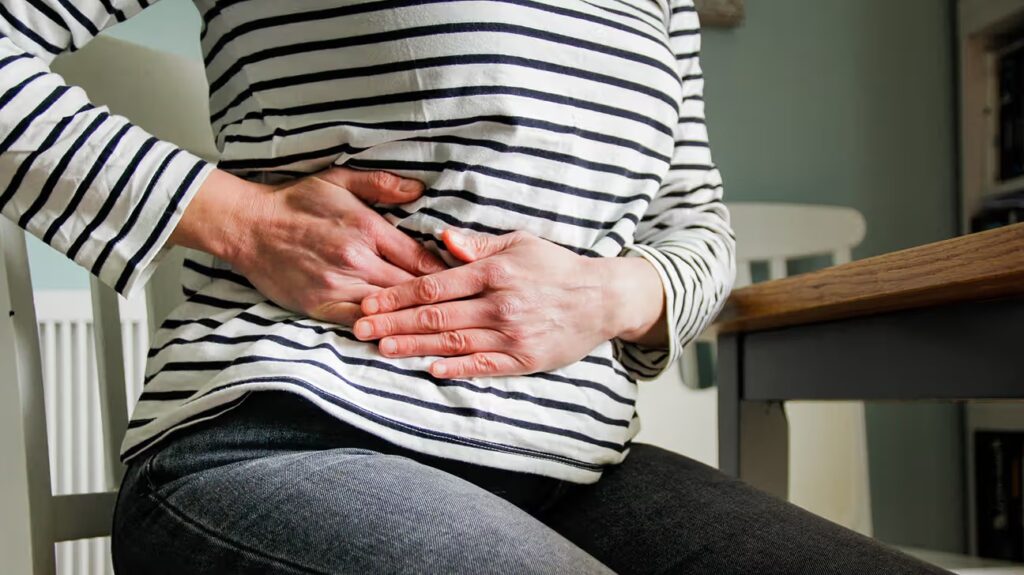
Stomach discomfort is a common issue that many people experience, often causing concern and uncertainty. Pain in the abdomen can vary from mild to severe and may occur on either the left or right side. Understanding the causes, recognising the signs, and knowing the available treatment options can help manage the discomfort effectively.
Causes of Stomach Discomfort
Abdominal pain can stem from numerous factors, ranging from benign issues to serious medical conditions. Identifying the root cause is crucial for effective treatment. Here are some common causes:
- Digestive Issues: Conditions such as indigestion, gas, or bloating can lead to painful stomach cramps. These are often triggered by eating habits or food intolerances.
- Inflammatory Conditions: Disorders like irritable bowel syndrome (IBS) or Crohn’s disease can cause persistent pain, especially on the left side.
- Kidney Problems: Kidney stones or infections may result in dull pain on the left or right side, depending on the affected kidney.
- Gynaecological Causes: For women, ovarian cysts or endometriosis can lead to discomfort in the lower abdomen.
- Infections: Viral or bacterial infections, such as gastroenteritis, often cause sharp pain and other symptoms like diarrhoea and vomiting.
- Appendicitis: Pain starting near the belly button and moving to the lower right side is a classic sign of appendicitis, which requires urgent medical attention.
Recognising the Signs
Abdominal discomfort can present itself in various ways. Paying attention to the specific nature of the pain can provide clues to its origin:
- Sharp or Cramping Pain: Often associated with digestive issues or infections.
- Dull, Persistent Pain: This can indicate underlying issues such as kidney problems or inflammation, particularly if you’ve been saying, “I have left-side abdominal pain” frequently.
- Pain with Additional Symptoms: Fever, nausea, changes in bowel habits, or blood in stool could indicate more serious conditions.
- Localised Pain: Pain specifically on the left or right side can help narrow down potential causes. For example, left-side dull pain is common in conditions affecting the colon or kidneys.
Natural Cures for Stomach Discomfort
While severe cases should always be evaluated by a healthcare provider, mild abdominal pain can often be managed with natural remedies:
- Dietary Adjustments: Avoid foods that trigger indigestion or gas, such as spicy or fatty meals.
- Stay Hydrated: Drinking plenty of water can help flush out toxins and prevent dehydration, especially during infections.
- Herbal Teas: Chamomile or peppermint tea can soothe the digestive tract and reduce painful stomach cramps.
- Warm Compress: Applying a warm pack to the abdomen may help relax muscles and alleviate cramping.
- Probiotics: Regular consumption of yoghurt or probiotic supplements can improve gut health and prevent digestive discomfort.
Medical Treatment Options
If natural remedies fail to provide relief or if the pain worsens, seeking medical care is essential. A hospital specialising in abdominal care can offer advanced diagnostic tools and personalised treatment plans.
Diagnostic Steps Include
- Imaging Tests: Ultrasounds, X-rays, or CT scans to detect issues like kidney stones or appendicitis.
- Laboratory Tests: Blood and urine tests to identify infections or inflammatory markers.
- Endoscopy or Colonoscopy: Visual examinations of the digestive tract to diagnose conditions like ulcers or inflammatory bowel diseases.
Treatment Options
- Medications: Antibiotics for infections, antispasmodics for cramping, or anti-inflammatory drugs for conditions like IBS.
- Surgical Intervention: Procedures for appendicitis, ovarian cyst removal, or severe kidney stones.
- Lifestyle Modifications: A long-term approach involving diet changes, regular exercise, and stress management to prevent recurrent pain.
When to Seek Immediate Care
Certain symptoms accompanying stomach discomfort should never be ignored. These include:
- Severe, sudden pain that worsens rapidly.
- Blood in stool or vomit.
- Persistent vomiting or inability to keep fluids down.
- High fever along with abdominal pain.
- Swelling or tenderness in the abdomen.
In these cases, immediate consultation with a healthcare professional is necessary. If you’re in search of a “private hospital near me” that offers reliable care, consider facilities equipped with 24/7 emergency services and experienced specialists.
Preventing Stomach Discomfort
Preventative measures can go a long way in reducing the likelihood of abdominal pain:
- Eat Balanced Meals: Incorporate fibre-rich foods to maintain digestive health and avoid overeating.
- Stay Active: Regular physical activity supports proper digestion and reduces stress.
- Hydration: Drinking water throughout the day helps prevent constipation and kidney-related issues.
- Routine Check-ups: Regular medical consultations can help catch potential issues early.
A Holistic Approach to Abdominal Health
Addressing stomach discomfort involves more than just treating the symptoms. At our private hospital, we prioritise a holistic approach, ensuring that patients receive both immediate relief and long-term guidance for maintaining abdominal health. Whether it’s diagnosing the causes of pain in the left side of the stomach or offering treatment for painful stomach cramps, our expert team is here to help.
By blending advanced medical care with compassionate support, we aim to provide a seamless experience for anyone facing abdominal discomfort. If you’ve been experiencing recurring symptoms such as left-side dull pain or sharp cramps, don’t hesitate to reach out for professional guidance.
Take control of your health today. Early intervention and proper care can make all the difference in ensuring a pain-free future. Book an appointment Today.
